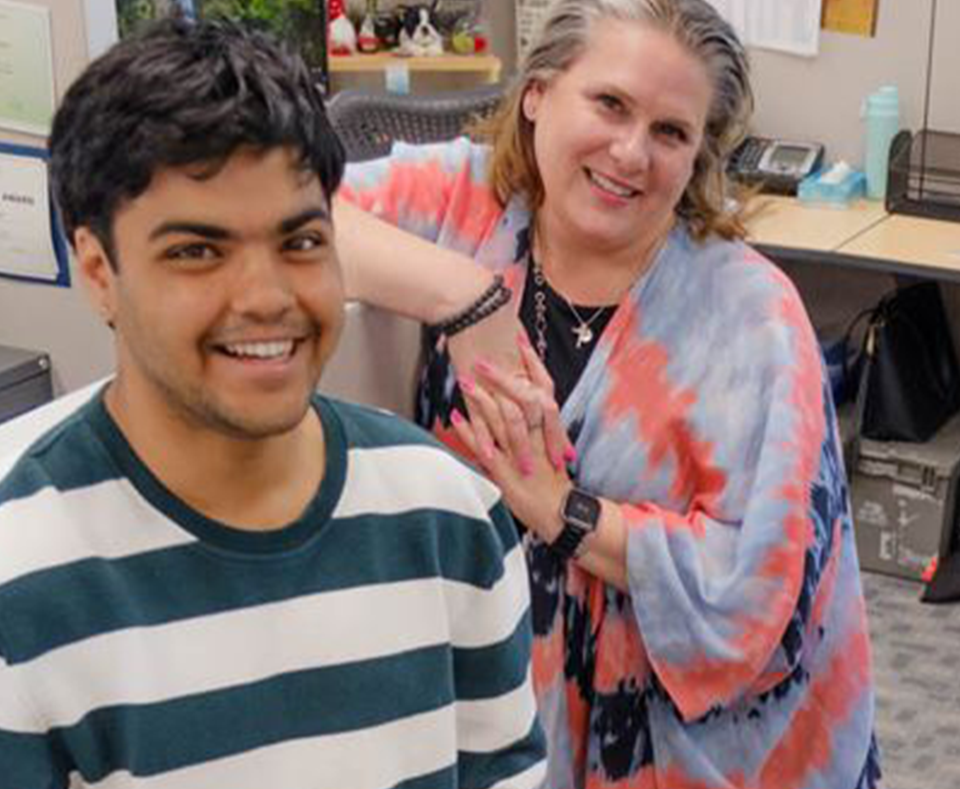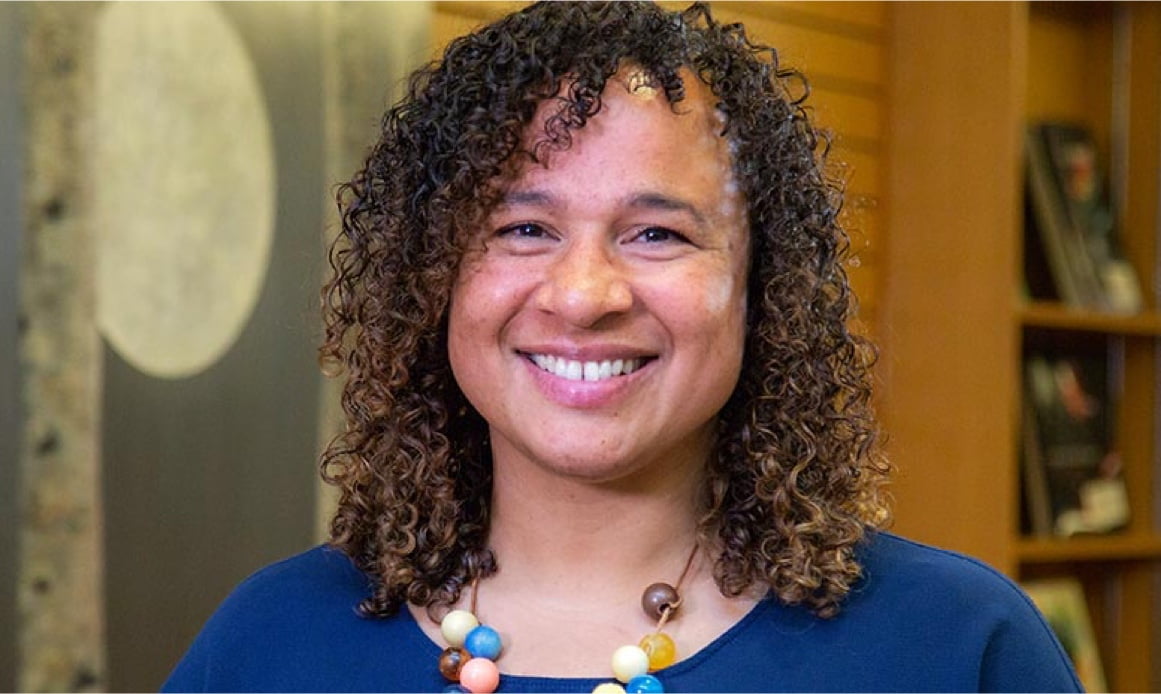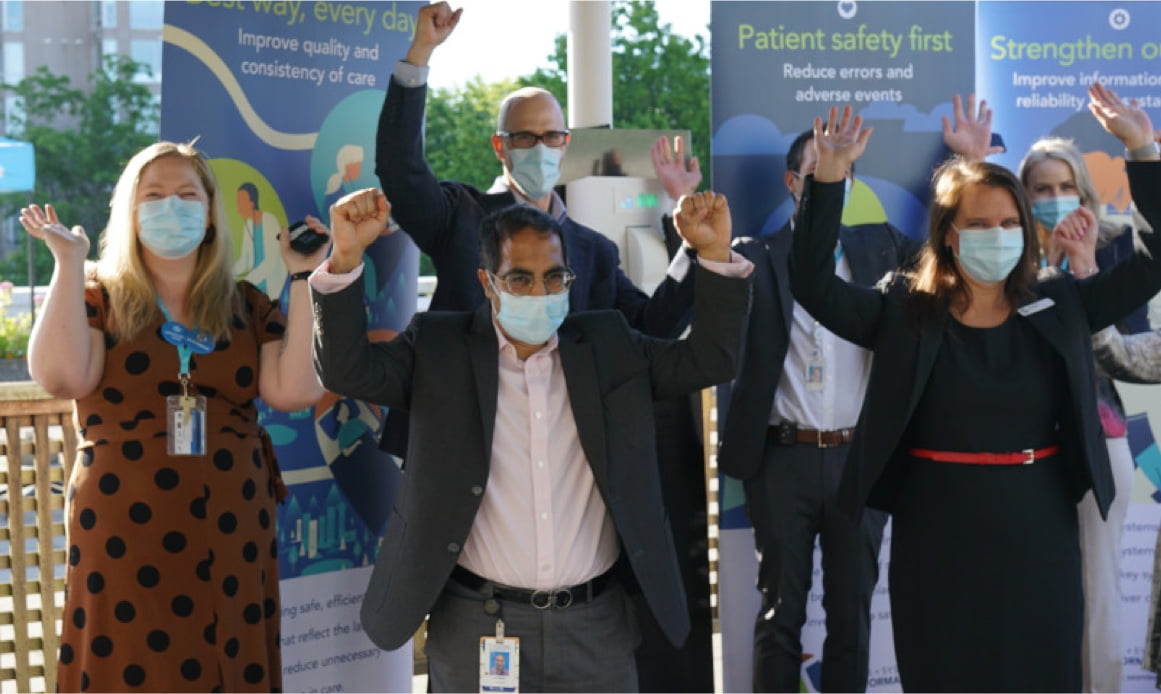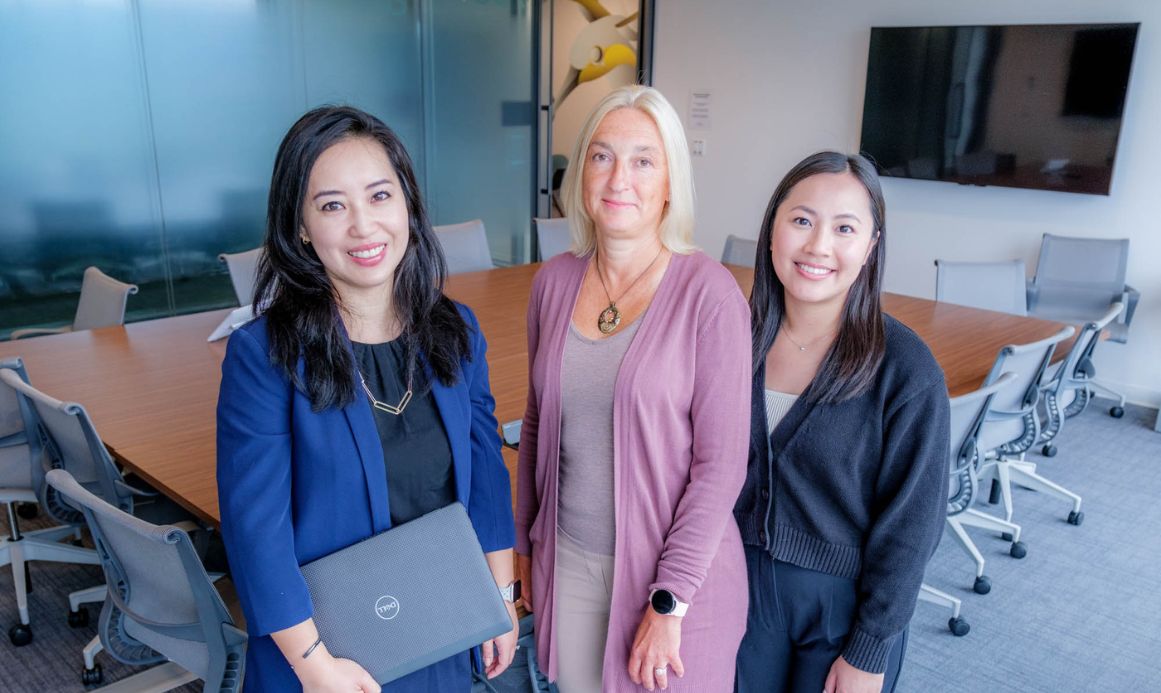Strategic Initiatives and Innovations Lead, Cultural Safety and Transformation - Provincial Health Services Authority
Strategic Initiatives and Innovations Lead, Cultural Safety and Transformation
Provincial Health Services Authority
Vancouver, BC
Pursuant to Section 42 of the British Columbia Human Rights Code, preference will be given to applicants of Indigenous Ancestry.
In accordance with the Purpose, Vision, Values and Coast Salish Teachings, and strategic directions of PHSA, safety, including both patient and employee safety, is a priority and a responsibility shared by everyone at PHSA. As such, the requirement to continuously improve quality and safety is inherent in all aspects of this position.
The Provincial Health Services Authority (PHSA) plans, manages and evaluates selected specialty and province-wide health care services across BC, working with the five geographic health authorities to deliver province-wide solutions that improve the health of people who live in BC. PHSA embodies values that reflect a commitment to excellence.
Reporting to the Executive Director, Cultural Safety and Transformation, the Strategic Initiatives and Innovations Lead works to plan, implement, liaise, and work collaboratively with key partners internally and within the province to support the leadership of strategic initiatives and innovations tied directly to the Cultural Safety and Transformation’s strategic priorities. The Lead assists with identified projects, proposes new initiatives and contributes to all aspects of strategic priorities, including the development, integration, implementation, and evaluation of initiatives that support the eradication of Indigenous-specific racism and embed cultural safety and humility. They research, propose, and implement innovative tools and technologies to address strategic priorities. The role provides leadership and expertise on a range of projects of varying size and scope related to strategic priorities, the development of key resources and papers, participation on provincial working groups, and providing advice to health system partners. The Lead will support the development and tracking of metrics to measure outcomes of program Action Plans to eradicate Indigenous-specific racism and improve patient care for Indigenous clients, patients, and families. The Lead provides input and guidance to the organization and facilitation of engagement initiatives, including public forums, focus groups, one-on-one interviews, and surveys, to elicit input and recommendations from Indigenous patients and families. The Lead may also support and lead subcommittees, working groups and project teams.
What you’ll do
- Providing Indigenous Thought Leadership, walks alongside Program and Corporate Leads to support the implementation and evaluation of Action Plans. with the aim of improving patient experience and health care outcomes for Indigenous peoples, ensures alignment with PHSA’s Strategic Plan, Health Standard Organization: Cultural Safety and Humility Standard as well as legislative obligations and provincial commitments of DRIPA, the Calls to Action of Canada’s Truth and Reconciliation Commission, and the findings and recommendations of In Plain Sight.
- Participates and when applicable, is the lead for the implementation of CS&T strategic priorities. Collaborates with members of the leadership team by sharing information and proposing recommendations and monitoring timelines that enable the attainment of goals and objectives, consistent with the CS&T strategic priorities.
- Develops networks to build engagement and participation with key partners for strategic initiative work.
- Builds partnerships with Indigenous partners, agencies, and groups across BC, in conjunction with the directors and staff, regarding Indigenous health issues, with the goal of optimizing opportunities for collaboration and ensuring an integrated and coordinated approach to improving health care, cultural safety and patient experience.
- Identifies key components and underlying issues and systematically analyzes problems and determines solutions.
- Synthesizes evidence and aligns multiples ideas and strategies to develop tools and resources to support strategic initiatives (including, but not limited to reports, topic materials, web-based tools, position, policy and white papers, and other documents).
- Works on all phases of project management (including but not limited to coordinating meetings, project planning, privacy impact assessments, CME/ethics applications, evaluation and monitoring of deliverables, presenting to internal and external audiences, preparing reports).
- Utilizes and models effective change management strategies to achieve systems level transformation. Provides leadership and management in the communication and availability initiatives that support language equity and access.
- Participates in the development and monitoring of project budgets within the context of operational demands and environmental and resource constraints and uses best practice methods to thoroughly monitor and adhere to allocated budgets.
- Provides leadership by giving advice or guidance in situations that require interpretation and judgment, supporting change management and increased communications.
- Some travel in the province is required.
What you bring
Qualifications
- Pursuant to section 42 of the British Columbia Human Rights Code, preference will be given to applicants of Indigenous Ancestry.
- A level of education, training, and experience equivalent to a Master’s Degree in Health Services Administration, Social Justice, Transformative Organizational Change or relevant health care discipline with a minimum of five (5) years recent, related experience in project management as well as facilitating and managing consultation processes involving a wide range of partner groups, including Indigenous health organizations.
- Demonstrate comprehensive knowledge of the historic and ongoing impacts of settler colonialism and systemic racism on Indigenous Peoples within social and health contexts. This includes understanding how these factors contribute to current health disparities and barriers to care. Show a clear commitment to identifying, challenging, and eradicating Indigenous-specific racism and all forms of discrimination impacting equity-deserving groups within healthcare settings. This involves recognizing personal biases, institutional barriers, engaging in anti-racism education and training and advocating for systemic change.
- Demonstrated knowledge and understanding of legislative obligations and provincial commitments within PHSA contexts found in the foundational documents including Truth & Reconciliation Commission’s Calls to Action (2015), In Plain Sight (2020), BC's Declaration on the Rights of Indigenous Peoples Act (2019), United Nations Declaration on the Rights of Indigenous Peoples (UNDRIP), Reclaiming Power and Place Missing and Murdered Indigenous Women & Girls Calls for Justice (2019), the Declaration Act Action Plan and Remembering Keegan: A First Nations Case Study, BC Human Rights Code, Anti-racism Data Act and how they intersect across the health care system.
Core Competencies
- Brings an understanding of the Indigenous specific racism and the broader systemic racism that exists in the colonial health care structure, and has demonstrated leadership in breaking down barriers and ensuring an environment of belonging. Embed Indigenous Cultural Safety and Humility into all aspects of work. This means creating an environment where Indigenous patients feel respected, valued, and understood. Foster trust through respectful communication, active listening, and honoring equity-deserving people's perspectives on health and wellness. Commit to ongoing education and training on Indigenous health issues, cultural safety, and DEI principles. Participate in workshops, cultural immersion experiences, and continuous professional development to stay informed and responsive to equity-deserving groups. Provide patient-centred care that respects Indigenous ways of knowing and healing, respects BIPOC experiences and world views ensuring that care plans are culturally relevant and holistic.
- Knowledge of social, economic, political and historical realities of settler colonialism on Indigenous Peoples and familiarity with addressing Indigenous-specific anti-racism, anti-racism and Indigenous Cultural Safety and foundational documents and legislative commitments (The Declaration Act, the Declaration Action Plan, TRC, IPS, Remembering Keegan, etc.).
Skills & Knowledge
- Demonstrated knowledge of Canadian colonial impacts on Indigenous peoples in social and health contexts, including gendered colonial violence supported by significant knowledge of Canadian and Indigenous ideologies.
- Demonstrated extensive knowledge of health issues, and especially the determinants of health, legislation and public policy affecting Indigenous peoples.
- Knowledge and appreciation of the unique history, cultures, and rights of Indigenous Peoples in Canada is required.
- Knowledge of and experience with Indigenous centered care and unique needs of Indigenous populations and health services. Demonstrates Indigenous Thought Leadership with Foundational documents: DRIPA, Truth and Reconciliation Call To Action report (2015), In Plain Sight: Addressing Indigenous-Specific Racism and Discrimination in BC Health Care (2020), Reclaiming Power and Place: Recommendations from the National Inquiry into Missing and Murdered Indigenous Women and Girls (2021), Sacred and Strong: Upholding Our Matriarchal Roles (FNHA, 2021).
- Experience or working knowledge of health systems and policy, organizational change, Indigenous-specific racism, resistance to change, population health, illness prevention, health promotion, mental health and substance use, knowledge exchange and change management.
- Advanced knowledge of relevant legislation to Social Work practice and national standards of pediatric pain and palliative care: Child, Family and Community Service Act, Mental Health Act, Infants Act, Health Care Consent & Care Facilities Admission Act, Freedom of Privacy and Information, Department of Indigenous Services Act, Adoption Act, and Adult Guardianship Act, Pediatric Pain Management National Standard, International Child Network for Palliative Care Standards.
- Demonstrates a commitment to beginning and continuing their personal learning journey related to Indigenous-specific racism and dismantling systems of oppression, as well as addressing racism more broadly. Shows willingness to articulate and share their learning experiences to contribute to a culture of motivation and inspiration among peers.
- Demonstrates foundational knowledge of the social, economic, and political realities of settler-colonialism and its impacts on Indigenous peoples and equity-deserving groups within social and health contexts. Understands the impact of social determinants of health-on-health outcomes. Shows a commitment to learning about and upholding legislative obligations and provincial commitments outlined in foundational documents such as the Truth & Reconciliation Commission’s Calls to Action (2015), In Plain Sight (2020), BC's Declaration on the Rights of Indigenous Peoples Act (2019), United Nations Declaration on the Rights of Indigenous Peoples (UNDRIP), Reclaiming Power and Place: Missing and Murdered Indigenous Women & Girls Calls for Justice (2019), the Declaration Act Action Plan, Remembering Keegan: A First Nations Case Study, the BC Human Rights Code, Anti-Racism Data Act, and the Distinctions Based Approach.
What we bring
Every PHSA employee enables the best possible patient care for our patients and their families. Whether you are providing direct care, conducting research, or making it possible for others to do their work, you impact the lives of British Columbians today and in the future. That’s why we’re focused on your care too – offering health, wellness, development programs to support you – at work and at home.
- Join one of BC’s largest employers with province-wide programs, services and operations – offering vast opportunities for growth, development, and recognition programs that honour the commitment and contribution of all employees.
- Access to professional development opportunities through our in-house training programs, including +2,000 courses, such as our San’yas Indigenous Cultural Safety Training course, or Core Linx for Leadership roles.
- Enjoy a comprehensive benefits package, including municipal pension plan, and psychological health & safety programs and holistic wellness resources.
- Annual statutory holidays (13) with generous vacation entitlement and accruement.
- PHSA is a remote work friendly employer, welcoming flexible work options to support our people (eligibility may vary, depending on position).
- Access to WorkPerks, a premium discount program offering a wide range of local and national discounts on electronics, entertainment, dining, travel, wellness, apparel, and more.
Job Type: Regular, Full-Time
Salary Range: $88,990 - $127,923 per year The starting salary for this position would be determined with consideration of the successful candidate’s relevant education and experience, and would be in alignment with the provincial compensation reference plan. Salary will be prorated accordingly for part time roles.
Location: 1333 West Broadway, Vancouver, BC V6H 1G9
Hours of Work: Monday – Friday; 0800-1600
Requisition # 180145E
What we do
The Provincial Health Services Authority (PHSA) plans, manages and evaluates specialized health services with the BC health authorities to provide equitable and cost-effective health care for people throughout the province. Our values reflect our commitment to excellence and include: Respect people – Be compassionate – Dare to innovate – Create equity – Be courageous.
Learn more about PHSA and our programs: jobs.phsa.ca/programs-and-services
PHSA is committed to anti-racism and equity in our hiring and employment practices. With learning and compassion, we are addressing existing inequities and barriers throughout our systems. PHSA is seeking to create a diverse workforce and to establish an inclusive and culturally safe environment. We invite applications and enquiries from all people, particularly those belonging to the historically, systemically, and/or persistently excluded groups identified under the B.C. Human Rights Code.
One of PHSA’s North Star priorities is to eradicate Indigenous-specific racism, which includes ongoing commitments to Indigenous recruitment and employee experience as well as dismantling barriers to health care employment at every level. We welcome Indigenous individuals to apply and/or contact the Sanya’k̓ula Team (Indigenous Recruitment & Employee Experience) for support at indigenous.employment@phsa.ca.
Indigenous-specific anti-racism initiatives are rooted in addressing the unique forms of discrimination, historical and ongoing injustices, and exclusion faced by Indigenous peoples. These initiatives align with an Indigenous rights-based approach, recognizing the inherent rights and title of BC First Nations and self-determination of all First Nations, Inuit and Métis communities. PHSA is mandated to uphold legislative obligations and provincial commitments found in the foundational documents including the Truth & Reconciliation Commission’s Calls to Action (2015), In Plain Sight (2020), BC's Declaration on the Rights of Indigenous Peoples Act (2019), United Nations Declaration on the Rights of Indigenous Peoples (UNDRIP), Reclaiming Power and Place Missing and Murdered Indigenous Women & Girls Calls for Justice (2019), the Declaration Act Action Plan and Remembering Keegan: A First Nations Case Study.
ATTN: PHSA Employees:
To be considered as a PHSA employee (internal applicant) for this position, you must apply online via your internal profile at internaljobs.phsa.ca
Please note the internal job posting will no longer be accessible after the expiry date of March 4, 2025. If the internal job posting has expired, please contact the Internal Jobs Help Desk and advise that you would like to be considered as a late internal applicant for this position. Please do not apply for the external job posting.
If you have not registered your internal profile, a password is required to log in for the first time. To obtain your password, please contact the Internal Jobs Help Desk at 604-875-7264 or 1-855-875-7264. Please note regular business hours are Monday – Friday (excluding stats), 8:30am to 4:30pm. For inquiries outside of regular business hours, please email the Internal Jobs Help Desk at internaljobshelpu@phsa.ca and a Help Desk Representative will contact you the next business day.
Learn More
Related Content
-
 Our Programs Explore to find the right program for you at PHSA.
Our Programs Explore to find the right program for you at PHSA. -
 Clinical and Systems Transformations | Careers at PHSA Clinical & Systems Transformation (CST) is a large-scale, multi-year project between Vancouver Coastal Health (VCH), PHSA, and PHC. Learn more here.
Clinical and Systems Transformations | Careers at PHSA Clinical & Systems Transformation (CST) is a large-scale, multi-year project between Vancouver Coastal Health (VCH), PHSA, and PHC. Learn more here. -
 Rewarding Health Care Nursing Careers and Jobs with PHSA Provide specialty nursing in clinical health care and research. Explore careers throughout B.C. with the Provincial Health Services Authority (PHSA).
Rewarding Health Care Nursing Careers and Jobs with PHSA Provide specialty nursing in clinical health care and research. Explore careers throughout B.C. with the Provincial Health Services Authority (PHSA). -
 Indigenous Health Care Jobs and Careers with PHSA Join our thriving Indigenous workforce in a corporate or clinical role. Explore careers in B.C. with the Provincial Health Services Authority (PHSA).
Indigenous Health Care Jobs and Careers with PHSA Join our thriving Indigenous workforce in a corporate or clinical role. Explore careers in B.C. with the Provincial Health Services Authority (PHSA). -
 Physician Careers at PHSA Our PHSA medical leadership team provides care that is among the best in the world, contributing to research that is changing the future of health care.
Physician Careers at PHSA Our PHSA medical leadership team provides care that is among the best in the world, contributing to research that is changing the future of health care. -
 Health Care Correctional Health Services Jobs and Careers With PHSA Correctional Health Services provides exceptional care for incarcerated patients. Join us in a career with Provincial Health Services Authority (PHSA).
Health Care Correctional Health Services Jobs and Careers With PHSA Correctional Health Services provides exceptional care for incarcerated patients. Join us in a career with Provincial Health Services Authority (PHSA). -

-

-
 Talent on Demand Talent on Demand is PHSA’s unique in-house recruitment program offering temporary employment opportunities in health care across British Columbia.
Talent on Demand Talent on Demand is PHSA’s unique in-house recruitment program offering temporary employment opportunities in health care across British Columbia. -
 PHSA recognized as a Top Employer in BC PHSA has been named one of BC's Top Employers for 2024 and 2025, recognizing its commitment to a supportive, enriching workplace. Join our award-winning team—apply today!
PHSA recognized as a Top Employer in BC PHSA has been named one of BC's Top Employers for 2024 and 2025, recognizing its commitment to a supportive, enriching workplace. Join our award-winning team—apply today!
Jobs for You
- Pediatric Plastic Surgeon - BC Children's Hospital Apr. 01, 2025
- Pediatric Plastic Surgeon Locum - BC Children's Hospital Apr. 01, 2025
- Data Scientist, Data, Analytics, Evaluation and Reporting (DARE) Mar. 31, 2025
You have not recently viewed any jobs
You have not saved any jobs











